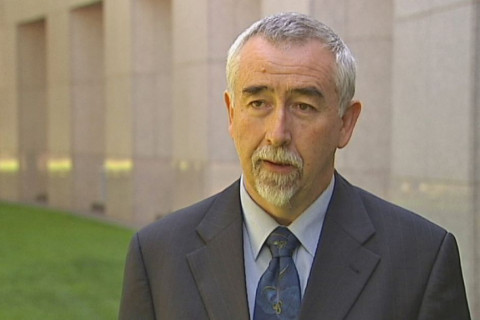
Rick Morton
The managers of the $22 billion National Disability Insurance Scheme have been excoriated for being “slow”, lacking transparency and being potentially “bloody-minded” in the way they seek to quash appeals by people with disabilities.
In an extraordinary decision, Administrative Appeals Tribunal deputy president Gary Humphries has attacked the National Disability Insurance Agency for tearing through legal resources simply because it has such a “haphazard” approach to making decisions.
“It seems to the tribunal entirely inappropriate that a participant, working with finite resources and coping with the added burden of a disability, should need to be left in doubt as to the status of decisions made affecting his or her entitlement to the benefits conferred by the legislation,” the decision says.
“Yet this is precisely the situation many applicants to the tribunal have found themselves in recently.”
The decision in the case of FFVQ, handed down on Monday, comes as The Australian can reveal the NDIA spent almost $6 million on internal and external legal teams last year.
Documents obtained under freedom-of-information laws show the agency spent $3.8m on external legal advice alongside its $2.1m outlay on its internal legal department. The Australian previously revealed the agency believed the risk to its financial stability was “extreme” from unfavourable court and tribunal decisions that had the potential to “vastly increase the scope of both access and reasonable and necessary supports”.
It is losing more cases, however, with data from the March quarterly update showing the NDIA has lost 42 per cent of the 375 resolved cases taken to the AAT. To March, a total 757 matters had been referred to the tribunal.
In the case finalised on Monday, a young woman sought to have the tribunal examine whether her second plan was adequate after the NDIA reduced the amount of funding.
Before the tribunal could make a finding in that case, however, the agency approved a third plan, again with less funding.
Under the vagaries of the legislation, the third plan effectively negates the work of the tribunal on reviewing the second plan, prolonging the process.
Despite finding the tribunal had no jurisdiction on the scheduling of internal versus external reviews, deputy president Gary Humphries implored Social Services Minister Dan Tehan to do something.
“The tribunal urges the responsible minister to consider as a matter of urgency the circumstances which give rise to this entirely unsatisfactory state of affairs, and to assess what measures, administrative or financial, might be required to mitigate it,” he says.
Mr Humphries is a former senator for the Liberal Party and was appointed to the AAT by then attorney-general George Brandis.
Mr Tehan said he was meeting with the NDIA today about the issue. “I will be asking them for a brief and advice on the comments made by the deputy president of the AAT,” he said.
An NDIA spokeswoman said last night it was “looking at further improving its litigation process to manage the inflow of AAT applications in relation to agency plan and access decisions.”
from https://www.theaustralian.com.au/national-affairs/health/tribunal-lashe…
Note: delay in the AAT relating to NDIS decisions about access and support for early intervention deny autistic children essential supports that improve outcomes through their whole life.